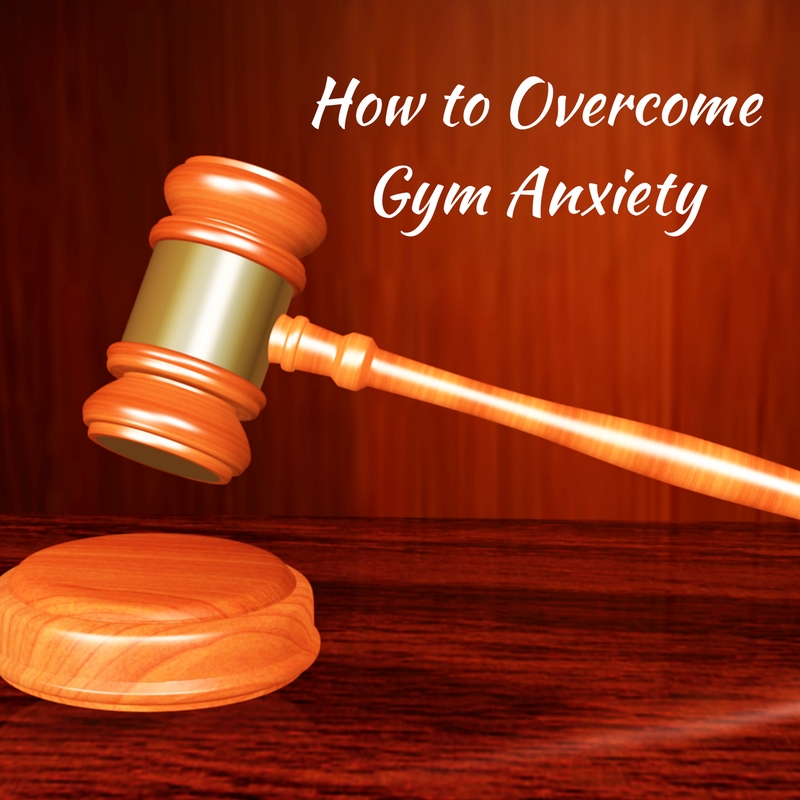
“I didn’t feel like I was fit enough to go to the gym.”
On my first day in the gym, I was surrounded by chalk dust, grunting, and a collection of what felt like the fittest people I’d ever seen.
I was almost too intimidated to go to the gym. I was nervous and I felt judged.
From my conversations with people getting started with exercise, I know that feeling intimidated at the gym is incredibly common. Overcoming gym anxiety is hard. Trust me: everyone has felt it at some point.
Overcoming gym anxiety is the first step towards not feeling judged and getting results. So how can you do it?
The good news is that this will get easier over time. A lot of stress and anxiety is related to uncertainty [1]. With every trip to the gym you’ll get more comfortable and confident because of the mere exposure effect [2]; just experiencing something a few more times make you like it more.
Until then, I caught up with five experts on fitness, personal development, and habit formation to give you the best advice on overcoming gym anxiety.
Here’s how to overcome embarrassment at the gym.
Steve “SJ” Scott of Develop Good Habits: Create a Gym Routine

Many people start out exercising full of motivation. This lasts for a while, but as motivation fades, and far too often, so does the exercise routine.
If you want to make an exercise routine that actually lasts there are three essential things you need to do.
1) Create a routine.
By ritualizing the exercise process, you take “choice” out of the equation.
- Exercise at the same time every day
- Exercise at the same place
- Do it when you are sick
- Do it when you are tired
- Do it when you have a major project at work
At first this can be extremely difficult, because you have to overcome lots of excuses. You have to set aside time from your busy life to become sacrosanct “workout” time. At first this can seem a burden on the rest of your busy life.
But over time, by creating a routine, you will find that exercising will become an energizing and relaxing part of your lifestyle.
2) Focus on routine. Not results.
Many people start exercising looking for results first and foremost. When results are slow to appear, they get discouraged. Fitness is a marathon, not a sprint. The results will come, but they take time.
Rather than getting tied up in results early on, focus on the routine. Make the effort to get out every day at the same time. Make it a pattern and get pride from showing up. Not from how much you do or how stunning the results are.
3) Start small
When you start an exercise routine, you do not need to be a fitness superstar. If all you can manage is a 20 minute walk. Start with that.
The important part is being consistent in your exercise. Your skills, ability and fitness level will increase. You just need to do something every day without fail. This builds the routine and helps ingrain it into your lifestyle.
Successful exercise is all about strengthening the routine of exercise.
Slyvon Blanco of Von Blanco Fitness: Bring a Friend

One of the best (and most effective) ways to overcome gym anxiety is to have a workout buddy when you’re first starting out.
This person could be a friend, family member, or even a personal trainer that you hire. The idea here is to simply have a companion for your first few workouts so you aren’t doing them all by yourself.
When you do things by yourself in an environment you aren’t comfortable with yet, it’s very easy to get anxious. Eventually, you’ll meet other people in the gym (and maybe make some “gym friends”) and that the feeling of anxiousness will go away.
Dan Western of Wealthy Gorilla: Do What’s Comfortable

When I first started working out, I was incredibly underweight. I was 6ft 2″, and weighed just 145lbs.
My friends laughed at me when I said I wanted to join the gym.
In the end, I got heavily into calisthenics. I started working out in my garage, and at local parks, and ended up packing on over 40lbs of muscle. It was only recently when I was travelling that I first set foot in a gym!
If you’re struggling with overcoming gym anxiety, consider starting off with calisthenics. It’s free, it’s fun, it can be done in private, and the gains are real! Check it out!”
Mike Samuels of Healthy Living, Heavy Lifting: Talk to an Expert

Hire a trainer.
I know finding a good trainer is easier said than done, but if you find someone you click with, they can take away all the stress and anxiety of going into the gym.
Even just having your workouts programmed for you gives you one less thing to think about, which can be massively helpful if you get nervous prior to training.
This one might sound weird, but I think headphones help a lot too. Having music pumping straight into your ears drowns out the noise around you and increases focus.
Stephen Guise, Author of Mini Habits: Overcoming Gym Anxiety

“There will always be someone who is further along the path than you are in every area. Instead of seeing that as a threat to your success, see it as irrelevant to your success, because it is! I can’t think of a single time that I changed my life because I thought I compared unfavorably to another person. Can you?
It’s great to have other people in life for support, socializing, and new perspectives, but when it comes to your personal progress, it seems best to leave others out of it, and especially so in the early stages of your growth in an area.
If you’re already world class in running, comparisons to other elite athletes might motivate you to get to the next level (and even in a healthy way). But in that case, you already have the solid foundation to build from. Many people don’t have such a powerful foundation, which is possibly why they want to improve, and so the comparison (to someone well ahead of them) makes them overreact.”
What do you do to feel confident in the gym?
Having trouble setting up a routine? Check out these resources:
- A 5 Step Technique to Consistently Going to the Gym
- How to Choose a Beginner Weight Training Program You’ll Stick To
- Choosing from 5 Beginner Lifting Routines
References
[1] Hsu, M., Bhatt, M., Adolphs, R., Tranel, D., & Camerer, C.F. (2005). Neural systems responding to degrees of uncertainty in human decision-making. Science, 231, 1680-1683.
[2] Lee, A.Y. (2001). The mere exposure effect: An uncertainty reduction explanation revisited. Personality and Social Psychology Bulletin, 27, 1255-1266.
Leave a Reply
You must be logged in to post a comment.